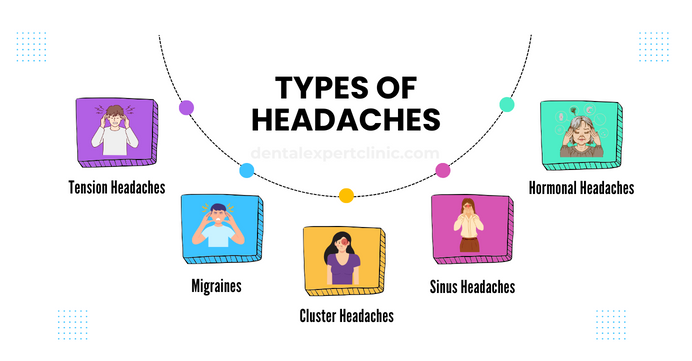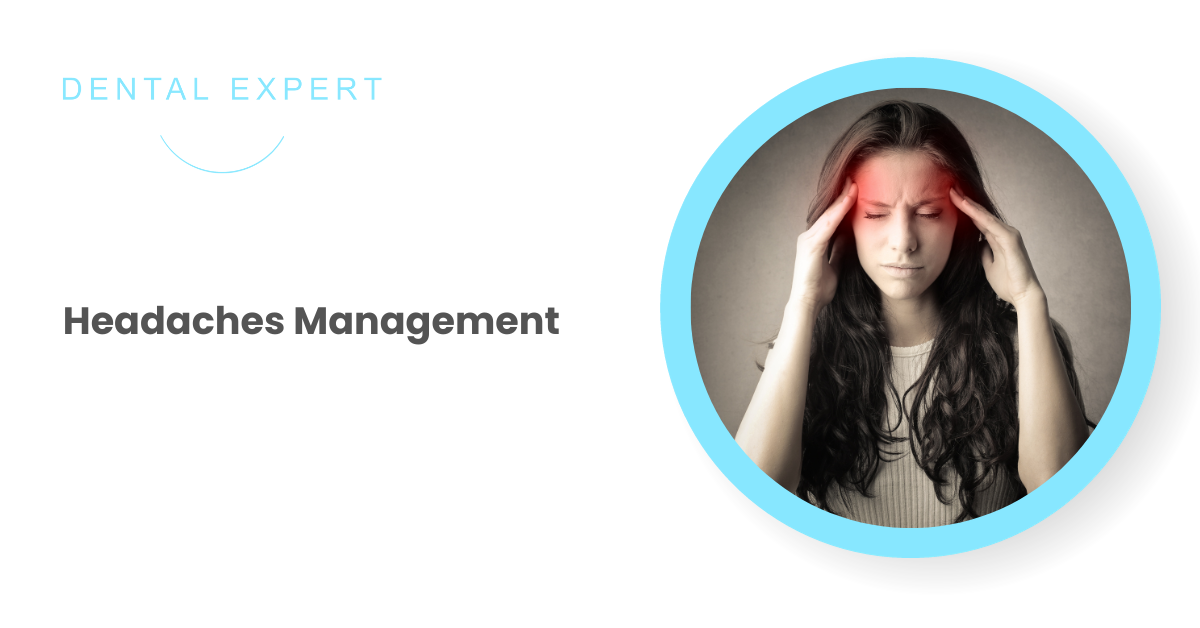Headaches are common and can disrupt your daily life and productivity. Whether you experience occasional headaches, debilitating ones, or chronic headaches, finding effective ways to manage and alleviate the pain is essential.
In this blog post, we will explore some types of headaches and offer some practical tips for headache relief and prevention.
Types of Headaches

Tension Headaches
These are the most common headaches and feel like a constant, dull ache around the head, temples, or neck. Stress, poor posture, and muscle tension can trigger tension headaches.
Migraines
Migraines are severe headaches that can cause throbbing pain, often accompanied by nausea, vomiting, and sensitivity to light and sound. They may last for hours or even days.
Cluster Headaches
Cluster headaches are incredibly painful and usually occur in cyclical patterns. They can cause intense, stabbing pain around one eye, along with red or teary eyes and nasal congestion.
Sinus Headaches
These headaches result from sinus infections or allergies, causing pain and pressure in the front of your head, around your eyes, and in your cheeks.
Hormonal Headaches
Many individuals, particularly women, experience headaches related to hormonal changes during menstruation, pregnancy, or menopause.
You can also read: Teeth Grinding (Bruxism): Strategies for Management
Managing and Preventing Headaches
Most headaches can be incredibly disruptive, and also difficult to diagnose and thus treat. The goal for headache management should be to improve your overall quality of life. Remember, what works best for you may vary, so it’s essential to find the right combination of strategies for your unique situation.
Seek Professional Help
If your headaches are frequent, severe, or accompanied by other concerning symptoms, consult a specialist healthcare provider like Dr. Denzil Albuquerque. They can diagnose the underlying cause and recommend appropriate treatment.
Monitor Your Diet
Some foods and drinks, such as caffeine, alcohol, and artificial sweeteners, can trigger headaches in susceptible individuals. Keep a food diary to identify potential triggers.
Manage Stress
Practice stress-reduction techniques like meditation, yoga, or deep breathing exercises to alleviate tension headaches.
Regular Exercise
Physical activity can reduce the frequency and severity of headaches. Aim for at least 30 minutes of exercise most days of the week.
Regular Sleep Schedule
Lack of sleep can lead to tension and migraine headaches. Ensure you get 7-9 hours of quality sleep each night.
Limit Screen Time
Prolonged screen time, especially on computers and smartphones, can strain your eyes and lead to tension headaches. Take regular breaks to rest your eyes.
Use Cold or Warm Compresses
Applying a cold or warm compress to your forehead or the base of your neck can provide relief for some types of headaches.
Over-the-Counter Medications
Non-prescription pain relievers, such as ibuprofen or acetaminophen, can be effective for mild to moderate headaches. You must consult a healthcare professional for chronic or severe headaches.
Alternative Therapies
Some people find relief through acupuncture, chiropractic care, or biofeedback. These complementary therapies may be worth exploring.
With the correct professional advice and correct strategies, you can manage and even prevent headaches. If you experience persistent or severe headaches, it’s always a good idea to seek advice from Dr. Denzil Albuquerque, who can provide personalized guidance and treatment options.
Dr. Denzil Albuquerque (BDS, MDS, FOFP-USA), is a specialist in headaches and pain management. He has completed his fellowship in Oro-Facial pain and headaches from the prestigious Roseman University, USA.
Schedule an appointment now at Dental Expert or request for an online consultation with Dr. Denzil Albuquerque, for professional advice on management of headaches.

